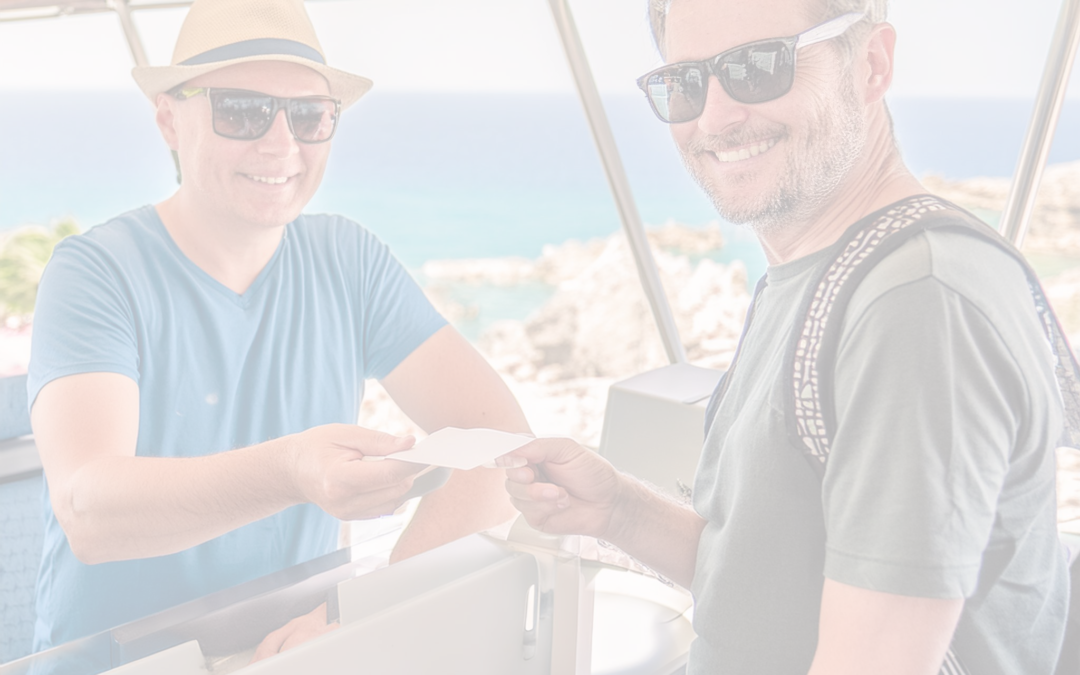Why Am I Asked For My NIF Number in Every Shop in Portugal?
Those holidaying or fairly new to Portugal might wonder why they are continually asked for their NIF or ‘ contribuinte’ tax number. You can be asked while paying for things in shops, particularly in supermarkets, pharmacies, restaurants, etc.
Initially, you might think that it’s Big Brother tracking your every move and keeping tabs on your personal spending. You would not be alone if you felt it was no one else’s business but yours and yours alone, when and where you spend your money. And indeed, you would have a point!
One of the first theories you might hear is that it is to keep shops and service providers honest and helps to counter tax evasion. It is especially fair to think that is the case with regard to a cash transaction. There is an element of truth in it, which will be expanded upon later on in this article.
You might also find it slightly annoying that you are continually asked for your NIF. Perhaps you have a similar feeling when you sit down at a restaurant and, without having asked for anything, along comes the couvert of bread, olives, butter, and sardine pate!
The prompting of the question is actually an advantage to the majority of the population.
Tax Residents and NIF number
The tax residents of Portugal can receive income tax relief on receipts that contain their NIF. Like a full VAT (or sales tax) invoice, they are tied to you individually. Any tax resident can receive a benefit for items such as groceries, car maintenance, sports, etc.
Tax deductible expenses can also be obtained in categories such as health, education, housing, nursing homes, and a few others. You can only obtain these allowances if the receipt has been issued with your personal NIF.
Other expenses have specific tax benefits too. They are hairdressing and beauty services, workshops and car repair services, restaurant and hotel expenses, veterinary services, and monthly passes for the use of public transportation. In all cases, it is mandatory to have a receipt with your personal NIF to benefit from the tax benefits available.
The net effect on an employed person is relatively minor, but the Portuguese are a thrifty bunch and, as we know, every little helps!
Non-Tax Residents and NIF number
If you own a property and buy an item that structurally improves your property, for example a new air conditioning unit or some paving slabs – do get a receipt (or fatura) which includes your personal NIF.
If you have work done by a contractor, only receipts that include your NIF will count as legitimate expenses that can off-set your deemed capital gain, when it comes to the sale of the property.
If you pay a builder in cash and do not receive an invoice with your NIF stated, it will not be considered legitimate in offsetting future capital gains tax.
If you buy a car from a dealer and ever need to pursue a warranty claim with an ombudsman, having a receipt with your NIF legitimises your purchase.
Self-employment, limited companies, and NIF number
For around 15% of the population, the benefits are much greater. Those who are self-employed can offset 100% of the expense against their income tax liability. There are fewer restrictions on what is deemed an allowable expense than in other countries.
Showing full tax receipts is also important for the several hundred thousand limited companies. Their directors, managers, and employees need to present full receipts or ‘fatura com contribuinte’ to obtain reimbursement or legitimise the tax offset.
Larger stores, such as supermarket chains, train their staff to prompt the NIF question as part of their customer service. Even though the purchase of groceries is probably the category that offers the least benefit.
I’m sure you agree that Portugal is a wonderful country inhabited by wonderful people!
As an ‘expat’ or recent immigrant you might not yet appreciate the culture of solidarity. In other words, each making a contribution to the provision of the social and welfare system of the country. Embedded in a warm and friendly culture is that of everyone doing their bit and that means paying a reasonable amount of tax and indeed, keeping everyone somewhat honest when it comes to the charging and payment of sale tax (IVA or VAT).
Rights and obligations
When you become a tax resident of Portugal, you should be submitting a tax return each year by March 31st. Once you spend more than 183 days in the country in any one tax year which runs from January to December – you are deemed to be a tax resident.
Becoming a tax resident may impact your financial life in ways that you are not aware of. If you are considering making Portugal your home or arrived relatively recently, do reach out to Ingenium Financial. We offer a complimentary initial conversation to fully understand the potential impact on your assets and income.

